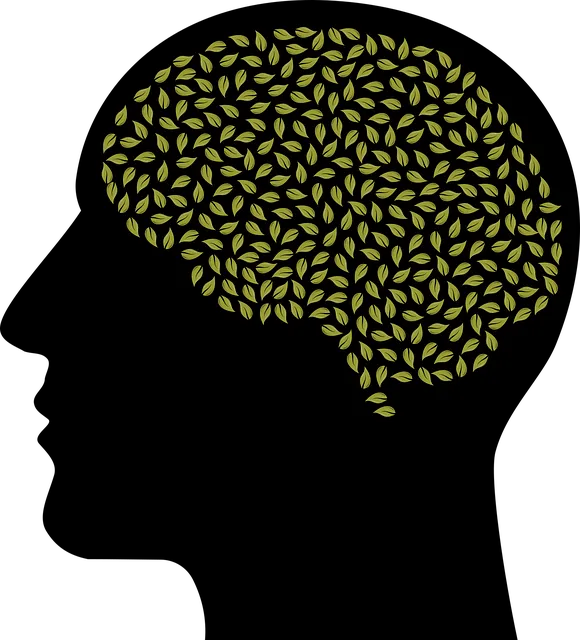In today's digital age, mental wellness apps are gaining popularity as accessible tools for managing stress, anxiety, and depression, thanks in part to centers like Lone Tree Kaiser Permanente behavioral health center. These apps offer personalized solutions like mindfulness exercises, mood tracking, and crisis intervention guidance, helping users improve their mental health outcomes. Inspired by the center's specialized services and commitment to destigmatizing mental health issues, these apps include features for burnout prevention, setting personal boundaries, and accessing helplines during distressing moments.
In today’s fast-paced world, mental wellness apps are becoming indispensable tools for managing stress and improving overall well-being. With increasing demand for accessible and personalized mental health support, this article explores the significance of developing such applications. We delve into essential features, from mindfulness exercises to therapy sessions, that enhance user experiences. Additionally, we highlight the role of Lone Tree Kaiser Permanente Behavioral Health Center in fostering innovative app solutions, ensuring their effectiveness and success in promoting mental wellness among users.
- Understanding the Need for Mental Wellness Apps
- Key Features and Functionality in App Development
- The Role of Lone Tree Kaiser Permanente Behavioral Health Center in App Success
Understanding the Need for Mental Wellness Apps

In today’s fast-paced world, mental wellness is gaining the recognition it deserves, thanks in part to organizations like Lone Tree Kaiser Permanente behavioral health center leading the charge. As a result, there’s a growing demand for accessible and effective tools that support individuals’ emotional well-being. Mental wellness apps step into this need by offering personalized solutions tailored to modern lifestyles. These digital companions can help users manage stress, anxiety, and depression, promoting better mental health outcomes.
The development of mental wellness apps goes hand in hand with increasing public awareness campaigns that destigmatize mental health issues. Features like mindfulness exercises, meditation guidance, and mood tracking, often found in such applications, cater to various user needs. Moreover, some apps integrate social skills training to foster connections, emphasizing the importance of community support for emotional intelligence development.
Key Features and Functionality in App Development

In the development of a mental wellness app, several key features and functionalities are essential to cater to users’ diverse needs effectively. One notable example is the integration of tools for burnout prevention, given the rising awareness of workplace stress and its impact on overall well-being. Features such as tracking work hours, setting boundaries for personal time, and providing mindfulness exercises can help users recognize and mitigate signs of burnout early on.
At the Lone Tree Kaiser Permanente behavioral health center, we understand that mood management is another critical aspect of mental wellness. The app should offer features like mood tracking, where users can record their daily emotions, and personalized recommendations for activities known to improve mood, such as exercise or meditation. Additionally, crisis intervention guidance is vital; incorporating resources for immediate support during moments of distress can save lives. This includes access to helplines, calming techniques, and tools to help users safely navigate challenging situations.
The Role of Lone Tree Kaiser Permanente Behavioral Health Center in App Success

The Lone Tree Kaiser Permanente Behavioral Health Center plays a pivotal role in the success and relevance of mental wellness apps. As a renowned center dedicated to behavioral health, it offers specialized services that address various mental health concerns, from managing stress and anxiety to coping with more severe conditions. This clinical expertise is invaluable for app developers aiming to create effective solutions. By collaborating closely with such centers, developers gain insights into the latest therapeutic techniques and research, ensuring their apps are evidence-based and aligned with best practices in the field.
Furthermore, the center’s commitment to initiatives like Inner Strength Development and Mental Illness Stigma Reduction Efforts directly informs app features designed to empower users. Their focus on burnout prevention strategies for healthcare providers also highlights the importance of self-care and resilience, prompting app developers to include tools that support not just patients but also mental health professionals in their well-being journeys. This holistic approach ensures that mental wellness apps are comprehensive, user-centric, and truly transformative.
Mental wellness apps have become increasingly vital tools in addressing the growing demand for accessible and personalized mental healthcare. By incorporating key features such as mindfulness exercises, mood tracking, and evidence-based therapies, these applications offer a comprehensive approach to supporting users’ mental wellness journeys. The success of initiatives like the Lone Tree Kaiser Permanente Behavioral Health Center’s involvement underscores the potential impact of digital solutions in transforming mental health care, making it more convenient and effective for those seeking support.






